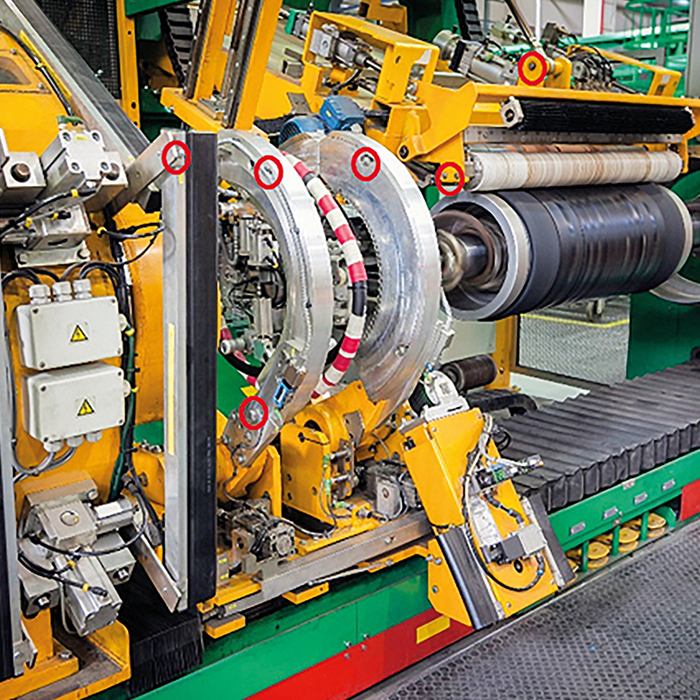Whenever a mechanical failure occurs outside the schedule maintenance window it has the potential not only to disrupt production but cost money. And as an Asian manufacturer of tyres will testify, the financial impact can be substantial. In one year, the company recorded no less than 284 maintenance emergencies that were attributed to bolts self-loosening on tyre moulding presses.
Each incident resulted in two hours of downtime which, in total, amounted to over £400,000 of production losses in the 12-month period.
The nuts kept loosening through thermal expansion during the machines’ operation. The initial response was for maintenance engineers to re-torque the nuts regularly to correct the clamp load but without any method of locking the thread against loosening, the problems prevailed.
Self-loosening is caused by any type of dynamic load, such as vibration or changes in temperature, insufficient clamp load and poorly fitting parts. These load changes lead to short-term frictionless situations where the bolt unwinds from the nut. The sum of these very small movements ultimately results in the loosening of the threaded assembly.
While mechanical methods of locking threads have their merits, none address the gap problem and therefore their ability to withstand loosening through vibration or thermal expansion is compromised. For this reason, the tyre manufacturer chose to use a thread locking adhesive instead.
Increasingly adhesive thread locking is proving very popular, either for use on its own, or to complement a mechanical thread locker. As well as preventing unwanted movement and loosening it effectively seals the assembly against leaks and corrosion.
Available as free-flowing liquids or semi-solid adhesives, these products completely fill the gaps between mating threads of fasteners and joints. Wicking grade formulations are also available that will creep into an existing assembly and between already-torqued threads.
The product the tyre manufacturer used was LOCTITE® 243, a medium strength thread locker that is formulated to allow disassembly with hand tools for servicing. And in common with several in this range LOCTITE 243 has been continuously developed. Its temperature resistance, for example, has been increased to 180°C, from 150°C, extending the products’ scope of application; heat ageing resistance has also been improved.
Another important development, from a time-saving perspective, is greater resistance to oil. This means LOCTITE 243 is ideal for use in the industrial environment where it is often difficult to remove all grease and grime.
For the tyre manufacturer, the use of LOCTITE 243 has resulted in a cost saving of £400,000 – a significant amount for such a small investment.
For more information on adhesive thread locking, Henkel has produced an e-book that is available to download at https://www.henkel-adhesives.com/uk/en/insights/tl-ebook.html



